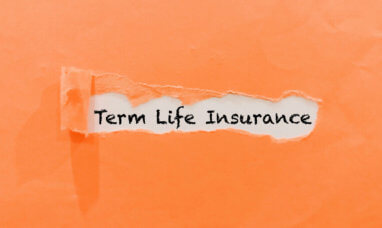Many people wonder if it is ever okay to borrow against a life insurance policy? The short answer to the question is: it depends. The longer answer we will delve into as we proceed.
The sad truth is when times are tough many people need to look for alternative funding, such as borrowing against a life insurance policy or taking out a loan. So, does borrowing against your permanent or whole life insurance policy (sometimes called cash value life insurance) make financial sense?
If you are in desperate need of cash then borrowing against, for example, a 25K life insurance policy could be wise compared to using high interest credit cards or fee-laden bank loans.
However, anytime you seek a quick financial fix – like borrowing against life insurance – there are going to be negatives as well. Let’s take a closer look at both the positives and negatives of borrowing against life insurance.
What is Permanent Life Insurance?
What type of life insurance policy generates immediate cash value? The answer to that question is permanent life insurance, or cash value life insurance. This type of insurance is a policy that gathers value as you consistently make your required payments.
In other words, a portion of each payment is set aside into a separate account that then builds up value over time.
This balance, or cash value, is what you can borrow against when you need cash fast. When considering life insurance many wonder is life insurance cash value protected from creditors? The short answer to this question is that it is, which is an important fact to note.
By creating escalating cash value, permanent life insurance differs from the other most common form of life insurance – which is called term life insurance.
Term life, to put it simply, provides a cash payout if you die during the term of the insurance policy. It acts more as a protection in case of an accident as opposed to an investment vehicle.
Term life insurance also doesn’t last your entire life – rather, you get the insurance for a specific time period. For instance, you may have term life for 30 years or 40 years or 50 years or you could have it until a specific age like 65 or 70 or 75.
When the term limit is hit and the policy has not been used there is no cash value that has amassed from your payments and the policy simply ends.
Before we go on, there is one more thing we should address about life insurance in general and that is the contestability of a life insurance policy.
You may hear this phrase when looking at policies. The life insurance contestability period refers to the fact that providers have a one or two-year period from when a policy is issued to make sure no material misrepresentation was made.
During this contestability period you may not be able to borrow against your life insurance.
Why Would You Borrow Against Your Life Insurance Policy
Let’s say an insured owns a $50,000 whole life policy – what are some reasons they may want to borrow against the cash value? First and foremost is when an unforeseen financial emergency hits. For example, if someone close to you suffers a medical crisis and you have high hospital expenses to cover.
Another example would be if you are laid off from work and desperately need money to cover bills or provide food for your family.
The cash value that accumulates on a permanent life insurance policy can also be used for other things like:
-
-
- To purchase additional insurance coverage
- To pay future policy premiums
- You may also be able to withdraw cash – however, you should keep in mind that if the money is not repaid your policy’s death benefit may decrease by that amount
-
Now let’s take a look at other things to consider when borrowing against your life insurance.
Advantages of Borrowing Against Your Insurance Policy
Bad Credit Doesn’t Affect It
If your financial situation has gotten worse, one of the big advantages of borrowing against life insurance is that you won’t have to undergo a credit check and qualify for a loan. The ‘loan’ or borrowing against your insurance will solely be based on the cash value that you have accumulated and nothing else.
Get Money Faster
When borrowing against life insurance, you also don’t have to go through a long, drawn out, often frustrating loan application process. In most cases, you simply fill out a short form and receive your money, with little to no waiting involved.
Avoid Higher Interest Rates
The Federal Reserve indicates that borrowing against life insurance typically has a lower interest rate than using credit cards or getting a loan from a bank. This, in turn, could make the loan easier to pay back once the financial emergency has been addressed and you are back on your feet.
Repayment Flexibility
One more advantage of borrowing against life insurance is that you can often pay back the loan on your schedule. This could give you more time to address any financial issues as opposed to having a hard deadline looming over you.
In addition, you may not even be required to pay it back. Of course, one thing to keep in mind here is that if the loan is not paid back your death benefit will be reduced by that amount.
Now that we’ve heard the advantages of taking out a loan against your life insurance policy let’s examine the negatives of this form of financing.
Disadvantages of Borrowing Against Your Insurance Policy
Limited Monetary Amount
Cash value builds rather slowly with permanent life insurance policies. That means if you need money there might not be a sufficient amount available to borrow. The result of this is that you may have to then take an additional loan or use additional credit.
Tax Consequences
Borrowing against a life insurance policy can also come with negative tax consequences. For example, if a policy lapses before a loan is repaid then there could be additional tax due on the borrowed amount.
Decreased Payout
One of the biggest risks of borrowing against life insurance is a decrease in the final payout amount of the policy. In other words, you could be receiving financial support now at the future expense of your heirs.
Odds of Coverage Loss Increase
One more disadvantage of borrowing against life insurance is that the odds of your policy lapsing increase. This often happens because there is interest charged on the loan and that interest is usually automatically deducted from the policy cash value. This process often goes unmonitored until the cash value is exhausted and it is suddenly difficult to make regular payments.
Should You Borrow Against Your Life Insurance?
As we’ve outlined above, this can be a very difficult decision with no clear cut right or wrong answer. The best way forward is to carefully study your options and select the one you believe gives you the best chance to remedy your current financial situation.
If you do decide to take out a loan against your life insurance cash value there are a few things you can do to help ensure a better experience:
-
-
- Set your own repayment schedule and stick to it just like you would be required to do with a bank loan or credit card charge
- Check the loans accrued interest monthly
- Commit yourself to repaying the loan in full so that your heirs receive the full death benefit upon your passing
-
Featured Image: Megapixl








